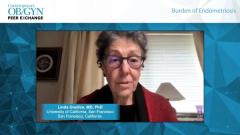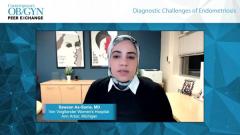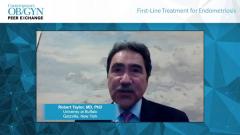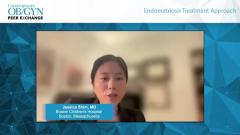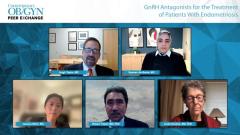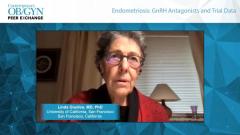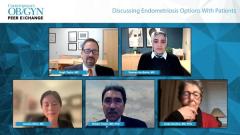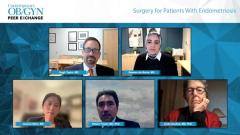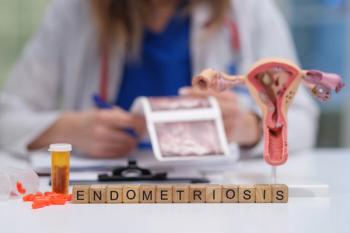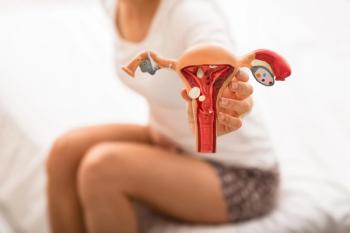
Complications Associated With Endometriosis
A panel of experts provide an overview of the health complications that are associated with endometriosis.
Episodes in this series

Hugh Taylor, MD: Let’s talk about some of the other health complications associated with endometriosis. Pelvic pain is the classic. Sawsan, maybe you can speak to some of the other manifestations and other organ systems that might be affected that are common in women with endometriosis.
Sawsan As-Sanie, MD: Pain is the pathognomonic symptom of endometriosis. As Jessica [Shim] and others mentioned, it can be almost any type of pain. Menstrual pain is 1 of the most common, but having nonmenstrual pelvic pain and pain with vaginal intercourse, urination, and bowel movements are classic symptoms. Infertility is also an extremely common finding in patients with endometriosis.
When you look outside the reproductive organs, patients with endometriosis are far more likely to have what we call overlapping pain conditions. This is pain that we think arises from other organ systems, including painful bladder or irritable bowel syndrome, even when those patients don’t have endometriosis on those organs. A lot of the work from all these panelists is showing that endometriosis is a systemic disease. It can affect and increase the lifetime risk of developing a lot of other diseases that aren’t reproductive at all. It’s associated with a slightly higher risk of developing certain types of cancer, including ovarian and thyroid cancers. Although the overall absolute risk is still extremely low, we should be very cautious about not making patients worry about that. We also see a higher prevalence of other inflammatory disease, like lupus and asthma. Those are some of the other common things we see.
Hugh Taylor, MD: That’s an important point about the cancer risk. It’s very small. It’s real, but I have many patients who come in who are overweight, don’t exercise, and smoke cigarettes but want to know if they can do something about their endometriosis-associated risks. Sometimes we get our priorities backward. It’s important to know that it’s real, but there are probably more meaningful things people could do to reduce their life expectancy and cancer risk than worrying about endometriosis-associated cancers. The other symptoms are the increase in affective disorders—depression and anxiety are much more common in patients with endometriosis, and that’s something to take seriously.
Sawsan As-Sanie, MD: Definitely.
Hugh Taylor, MD: Anabolic disturbances with endometriosis tend to have lower BMI [body mass index] and lower body fat. Many things tagged this as a systemic disease that affects multiple organ systems. I find that a patient’s first complaint is usually pelvic pain. We focus on the pelvic pain, but it’s reassuring and validating to them when we talk about the entire spectrum of what they’re experiencing, to know that it’s all related, and it’s not that they have 5 separate illnesses that they’ve been plagued with. It might all be related to 1 diagnosis: endometriosis. Focusing on that could help reduce some of the diagnostic misadventures. Many of our patients who have endometriosis have gone to multiple specialists and had many other tests done. But in reality, we could have focused on endometriosis from the beginning.
Sawsan As-Sanie, MD: That’s a tricky point though, because patients with endometriosis can have other diseases, so you want to define that fine line of when you attribute symptoms to the endometriosis. The way I like to think about it and talk to patients about it is, “We’re going to absolutely treat your endometriosis. But if some of these other symptoms don’t improve, we want to make sure we’re not missing other diagnoses.” Because you can also fall into the trap and the misadventure of over attributing other symptoms to endometriosis and then missing diagnoses. This delays diagnosis of disease that we could very effectively treat with appropriate medications or treatments that would be appropriate for those other conditions as well.
Hugh Taylor, MD: That’s very important. I like the way you framed that: approach treating the endometriosis, but don’t forget about the other symptoms.
TRANSCRIPT EDITED FOR CLARITY
Newsletter
Get the latest clinical updates, case studies, and expert commentary in obstetric and gynecologic care. Sign up now to stay informed.



